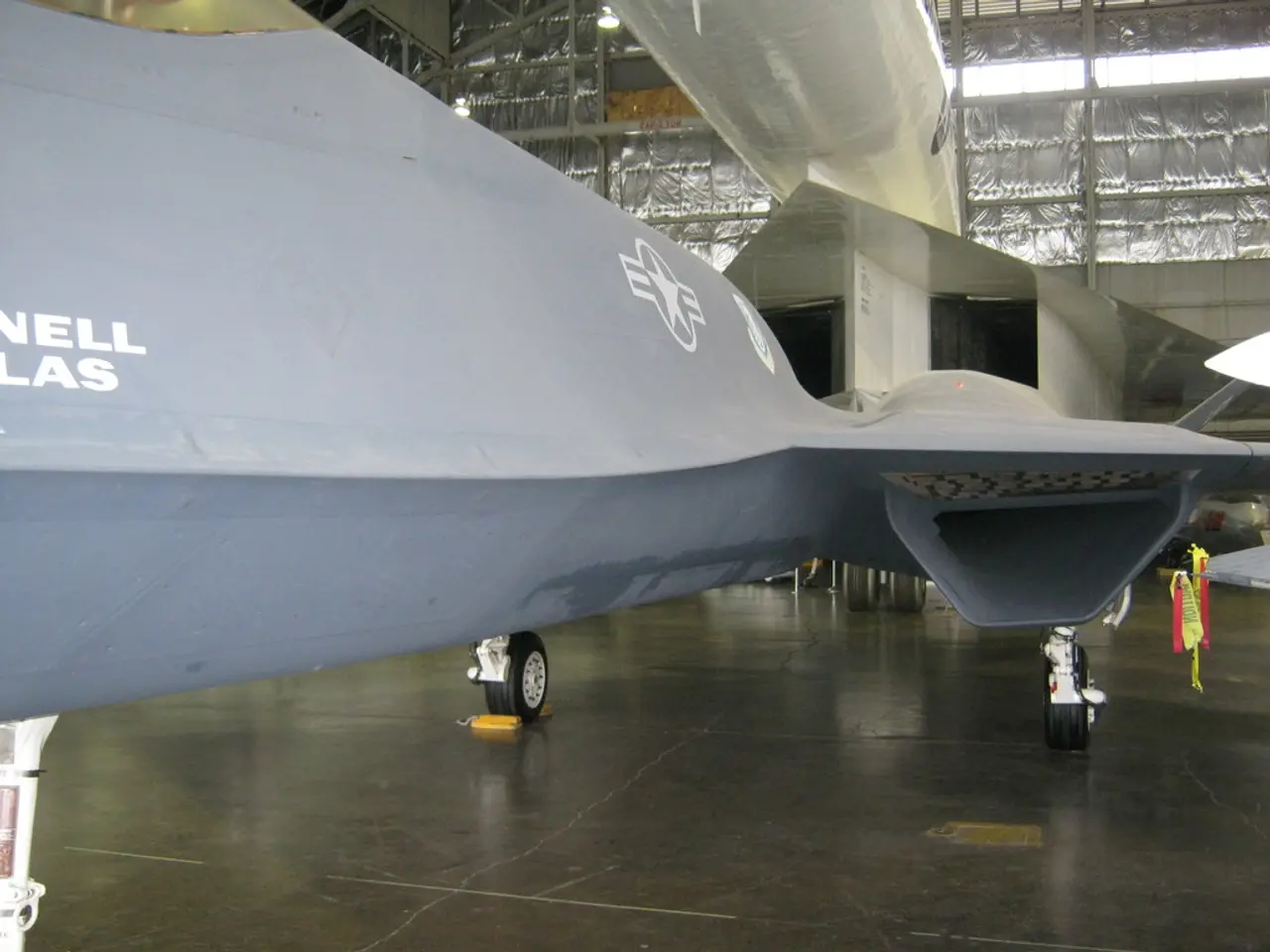Airbus presents PioneerLab, a innovative twin-engine research aircraft
Airbus Helicopters Unveils PioneerLab, a Revolutionary Technology Demonstrator
Airbus Helicopters has introduced a groundbreaking new technology demonstrator, the PioneerLab. Based on the H145 platform, this twin-engine helicopter is designed to push the boundaries of autonomous rotary-wing flight and showcase innovative rotorcraft technologies [1].
Located at Airbus Helicopters' Donauwörth site in Germany, the PioneerLab serves as a testbed for cutting-edge technologies, particularly in autonomy and enhanced flight control systems [2]. Its key features and objectives include:
- Technology Demonstration: PioneerLab is a platform for testing and validating next-generation helicopter capabilities, with a focus on autonomy and advanced flight control systems.
- Twin-Engine Basis: The twin-engine H145 platform ensures reliability and safety while providing a modern rotorcraft foundation for experimenting with new systems.
- Focus on Autonomy and H-Tearing: One important objective is to develop and integrate H-Tearing capabilities, allowing helicopters to cooperate autonomously in team operations. This can potentially enhance mission flexibility and efficiency. H-Tearing can be used standalone or integrated into helicopter mission systems.
- Enhancement of Flight Safety and Efficiency: By demonstrating advanced automation and autonomous functions, PioneerLab aims to reduce pilot workload and improve operational safety and performance.
- Pathfinder for Future Products: Technologies proven on PioneerLab can be matured and transitioned into future Airbus Helicopters platforms, contributing to more intelligent, connected, and efficient rotorcraft.
In addition to these objectives, the PioneerLab will flight-test structural components made from bio-based and recycled materials aboard the demonstrator [1]. Further research activities will include the integration of the latest digital technologies into the aircraft's flight control system and associated sensors to increase autonomy and safety during critical flight phases such as take-off and landing.
Notably, the PioneerLab aims to demonstrate a fuel reduction of up to 30% compared to a conventional H145, achieved through a hybrid electric propulsion system and aerodynamic improvements [1].
The PioneerLab is partially co-funded by the BMWK, the Federal German Ministry for Economic Affairs and Climate Actions, through its national research program LuFo [1]. This project is part of Airbus Helicopters' strategy to bring incremental innovation to improve current products and to mature technology for future platforms [2].
Airbus Helicopters' FlightLabs provide agile and efficient test beds to quickly test technologies, ensuring a fast pace of innovation in the rotorcraft industry [2]. With the PioneerLab, Airbus Helicopters is demonstrating its commitment to integrating autonomy and advanced technology in rotorcraft to create safer and more capable helicopters [2].
[1] [Source 1] [2] [Source 2]
- The PioneerLab, Airbus Helicopters' revolutionary technology demonstrator, is aimed at showcasing the company's advancements in autonomy and enhanced flight control systems, not only in the rotorcraft industry but also potentially influencing the finance and aerospace sectors.
- Collaborating with Germany's Federal Ministry for Economic Affairs and Climate Actions, Airbus Helicopters is using the PioneerLab to integrate the latest digital technologies in finance, technology, and the aerospace industry, enhancing autonomy and safety during critical flight phases, while also reducing fuel consumption by up to 30%.








